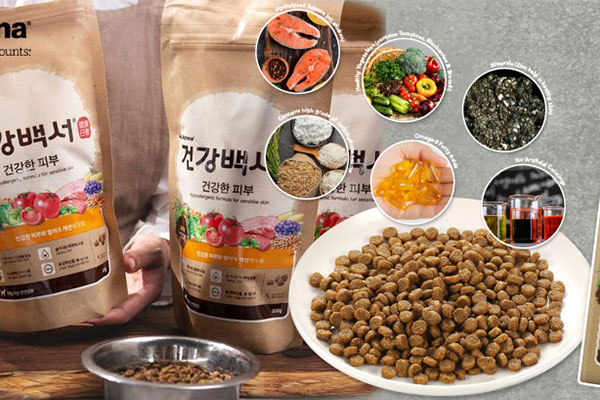With the continuous development of economic globalization, China's pet food industry has experienced rapid growth and change. Pet food companies in the Chinese market are seeking broader development space and looking to the international market. In particular, South Korea, as a market with growing demand for pet food, has become an important target for Chinese companies on their way to internationalization. However, international trade is not easy, especially in the special industry of pet food. This article will discuss in detail how Chinese companies can successfully export pet food to South Korea, including the inspection and quarantine requirements, registration procedures and product quality standards that must be followed.

Opportunities and challenges in the Korean pet food market
The rapid growth of the Korean pet market has provided new business opportunities for international companies. The increasing demand for high-quality pet food among pet owners has prompted the market to develop in a high-end and professional direction. For Chinese pet food manufacturers, this is not only an opportunity to expand sales, but also a great opportunity to enhance the international image of the brand. However, entering the Korean market is not without barriers, and the export of pet food needs to meet a series of complex regulations and standards.
Inspection, quarantine and registration requirements for pet food exported to South Korea
First, Chinese pet food companies must understand and comply with South Korea's specific requirements for imported pet food. This includes ensuring that the products come from officially registered and certified production and processing companies in China. Before the first export, companies need to apply for registration with the local direct authority and submit necessary materials, such as production licenses, product approval numbers, production process flow charts, plant floor plans, and lists of related products and raw materials.
If there are any changes in the operation of the enterprise, such as changing the name, legal representative, product type or production capacity, it is necessary to re-apply for registration within 30 days after the change. In addition, if the enterprise needs to extend the validity period of the registration, it should apply three months before the expiration of the validity period. For enterprises that are no longer engaged in export business due to suspension of production, conversion of production or bankruptcy, they should promptly go through the cancellation procedures with the relevant departments.
Special requirements and product quality standards
In addition to the basic registration and approval process, Chinese companies also need to pay special attention to South Korea's specific requirements for pet food quality. This includes hygiene standards, processing conditions, and harmful substance limits during the production process. Companies should establish a quality control system that complies with the HACCP principle to ensure that products are properly sterilized with wet heat or dry heat and meet the standards specified in the "Scope and Permitted Criteria for Harmful Substances in Feed."
Importers or manufacturers must also register the types, ingredients and other relevant information of their products with the Korean authorities. In addition, each batch of pet food exported to South Korea must be accompanied by an official veterinary health certificate to prove that the product meets health and safety standards.
In addition, companies should continue to pay attention to updates on relevant laws and regulations from the Korean authorities to ensure continued compliance and grasp market trends.


 Follow customer service WeChat
Follow customer service WeChat